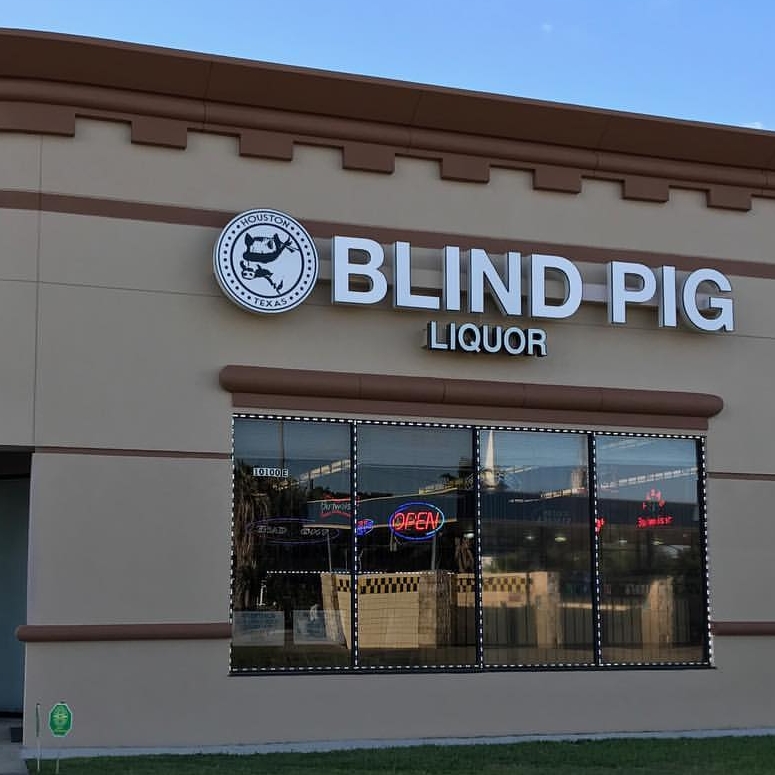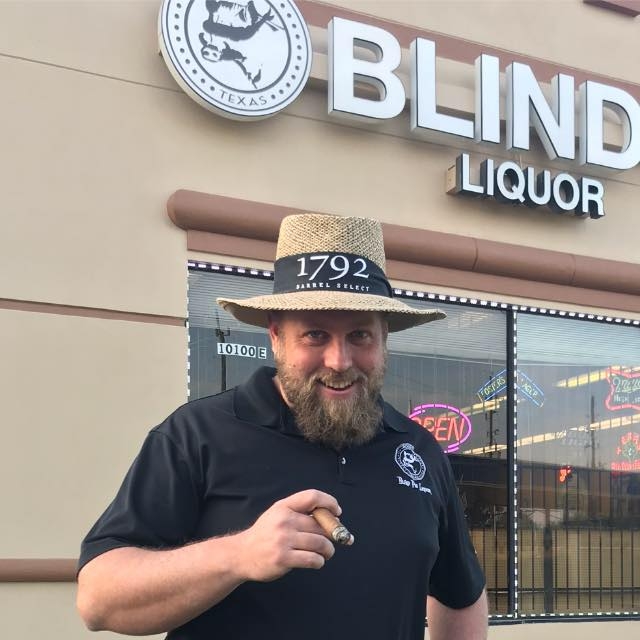What is Blind Pig Liquor?
Focused on Community
Blind Pig Liquor is a Prohibition-themed liquor store in northwest Houston. We put excellent customer service foremost among our priorities.
Over the past three years, we have firmly planted our roots in the Winchester community, and we pride ourselves on focusing on the needs of our neighborhood customers. We'll order anything we don't have on hand. We have sponsored a number of charity functions within the community. And, over the last year, we have begun servicing catering and distribution clients in the area.
Recently, we have gained attention for our bourbon selection. As a store, we select barrels of bourbon from the most beloved distilleries in the nation. These barrels are then bottled and sold exclusively in our store. As an added bonus, we have partnered with a graphic artist to create unique, exquisite label art for our store-pick bottles.
Our recent forays into the exclusive, premium bourbon scene and growth of distribution clients are key elements in our plans to ensure we remain a staple in our community for years to come.
Dedicated Leadership
Nathan (Nate) has managed Blind Pig Liquor for over three years. He is a graduate of Sam Houston State University where he received a degree in banking. Prior to the Blind Pig, Nate made a living in the oilfield, working on rigs across the country, from the Eagle Ford shale in south Texas to the Bakken in North Dakota. Nate lives in Cypress with his wife Nikki and two children Thomas and Abigail.
Recently, Nate's longtime friend Aaron joined the store as distribution manager. Aaron, a proud alum of Texas A&M, holds a degree in marketing. Prior to joining the Blind Pig, Aaron traveled the country working at various PGA tour events.
Together, Nathan and Aaron are committed to the store and their customers. They are always ready to make recommendations regarding their products and engage customers in friendly conversation. They can often be found sitting outside of the store enjoying a cigar.
What's does "Blind Pig" Mean?
There are a couple of ways to answer this question:
The origin Story
It's said that a farmer in Maine used to charge people a fee to view a blind pig he kept on his farm. Along with the price of admission, each patron would receive a free glass of rum.
Another Name for a "Speakeasy"
A blind pig establishment, also known as a speakeasy, illegally stocked spirits for its patrons during Prohibition.
Prohibition was established with the 18th Amendment to the United Stated Constitution and was designed to lower crime and improve the quality of life and productivity for all Americans. During Prohibition, the consumption of any alcohol—even wine during supper at a person's own home—was illegal. It lasted from 1920–1933 when it was overturned by the 21st Amendment.
Blind pig establishments were prominent during Prohibition. According to Stanford University Libraries' Riverwalk Jazz program, there were over 100,000 such establishments in New York City alone by 1925. The illegal selling of alcohol, or bootlegging, became a thriving business for organized crime and produced some of the most infamous American gangsters, like Al Capone.
“When I sell liquor, it’s called bootlegging; when my patrons serve it on Lake Shore Drive, it’s called hospitality”
—Al Capone
Although bootlegging created a terrible crime issue in the United States at the time, speakeasies became some of the most inclusive establishments in the country. The Civil Rights Movement was still decades away and people of color were largely segregated from the population. Women had just been granted the right to vote but were expected to maintain stereotypical roles at home. During this period, known as the Roaring Twenties, flappers defied what it meant to be women and African-American musicians created the Jazz Age, and many came together in speakeasies. Men and women of all races could often be found in such places mingling amid soft, smoky lights and the music of Duke Ellington and Louis Armstrong.
According to novelist F. Scott Fitzgerald, during Prohibition, “The parties were bigger…the pace was faster…and the morals were looser.”
— Speakeasies, Flappers & Red Hot Jazz: Music of the Prohibition




